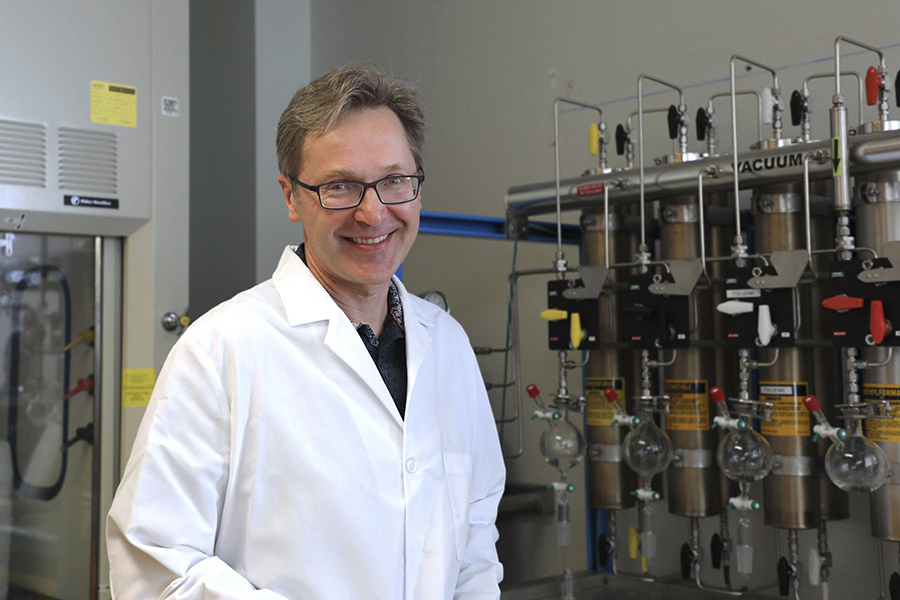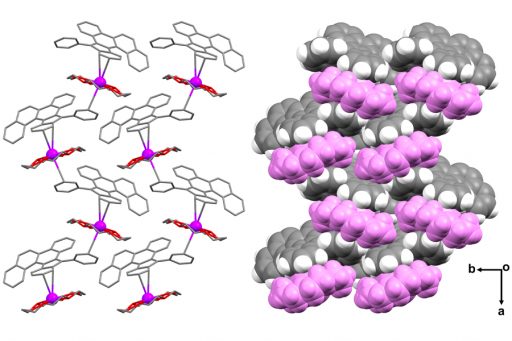
A Florida State University chemist has been awarded a prestigious regional award from one of the world’s largest scientific societies.
Cottrell Family Professor of Chemistry Igor Alabugin has been selected by the American Chemical Society Memphis Local Section for the Southern Chemist Award in recognition of his innovative work in the field of organic chemistry, including the discovery of new reactions and never-before-seen molecules.
“The Southern Chemist Award is highly competitive, considering that the population of the southern U.S. is close to 100 million people,” Alabugin said. “Several esteemed FSU chemists have won this award in the past, but after learning the news, I still felt like I won a lottery with nearly impossible odds. I am happy to accept this honor on behalf of FSU as my work would be impossible without the many contributions of my students, coworkers and collaborators.”
The 2023 Southern Chemist Award is the latest in a lengthy list of accomplishments for Alabugin, who was the first-ever FSU recipient of ACS’s eminent Arthur C. Cope Scholar Award in 2020, the 2022 recipient of the ACS Florida Award, and a 2021-2022 recipient of FSU’s Distinguished Research Professor Award. Alabugin has presented more than 300 invited lectures at universities, industries and conferences and published two books and more than 200 papers, and he currently holds 16 patents.
Since 1952, the Southern Chemist Award has annually recognized distinguished service to the chemical profession in the southern United States, including Alabama, Arkansas, Florida, Georgia, Kentucky, Louisiana, Mississippi, North Carolina, South Carolina, Tennessee and Virginia. Nominees must have brought recognition to the South through their work in the last decade and have actively participated in events hosted by the American Chemical Society.
Seven FSU faculty members have previously been selected for the Southern Chemist Award, including prominent chemists Greg Choppin, Michael Kasha, Alan Marshall and Naresh Dalal.
Alabugin earned bachelor’s and doctoral degrees at Moscow State University in Russia in 1991 and 1995 before moving to the U.S. to pursue a role as a postdoctoral researcher at the University of Wisconsin-Madison. An FSU faculty member since 2000, Alabugin’s research focuses on synthesis and catalysis, computational chemistry, environment and energy, nanoscience, photochemistry and spectroscopy.
“Very broadly, my research aims to understand how to better use energy stored in molecules and how to convert the energy of chemical bonds into increased reactivity,” Alabugin said. “More specifically, we want to learn how to create carbon-based magnetic materials to invent new ways to make chemical bonds, to lock flexible molecular chains into cycles, and to convert molecules on the brink of breakdown into useful and stable entities. By doing so, we can open new regions of molecular space for pharmaceutical discovery and advancements in medicine.”

Understanding the world of molecules is key to the development of new pharmaceutical drugs, advanced chemical materials and next-generation technologies. In his lab, Alabugin emphasizes making molecules that can test the limits of imagination, deepen scientists’ understanding of the material universe and help address humanity’s challenges in energy consumption, disease progression and climate change, among others. The computations and experiments pursued by Alabugin and his team have led to potential applications in targeted cancer treatment, in which light-activated molecules can selectively damage double-stranded DNA in cancer cells, as well as in molecular electronics and bioorthogonal chemistry.
“The unexplored molecular universe is a gold mine for future generations,” Alabugin said. “This means we will never run out of molecules to make and explore, which is good because each unexplored molecule could become a new medicine, a component of a molecular computer, an indicator that can report a malfunctioning brain cell, a chemical weapon against a malignant tumor and so much more.”
As the first faculty member to be awarded all three FSU Undergraduate Awards — Teaching, Advising and Research Mentor — Alabugin works to build a learning environment that propels his students toward success. Among his previous students are Kerry Gilmore, now an assistant professor at the University of Connecticut and winner of the 2021 ACS Green Chemistry Award, and Gabriel Gomes, an assistant professor at Carnegie Mellon University who has published more than 40 papers and was chosen as one of top 12 talents in chemistry in 2021 by Chemical & Engineering News.
“Dr. Alabugin is a highly regarded organic chemist who uniquely combines the power of organic and computational chemistry to deepen and enrich the thinking toolbox of our field and ensure student growth,” department Chair Wei Yang said. “His scientific visibility further demonstrates the overall strength of the Department of Chemistry and Biochemistry and our continuous pursuit of academic excellence for students and faculty.”
To learn more about Alabugin’s work and the Department of Chemistry and Biochemistry at FSU, visit chem.fsu.edu.



